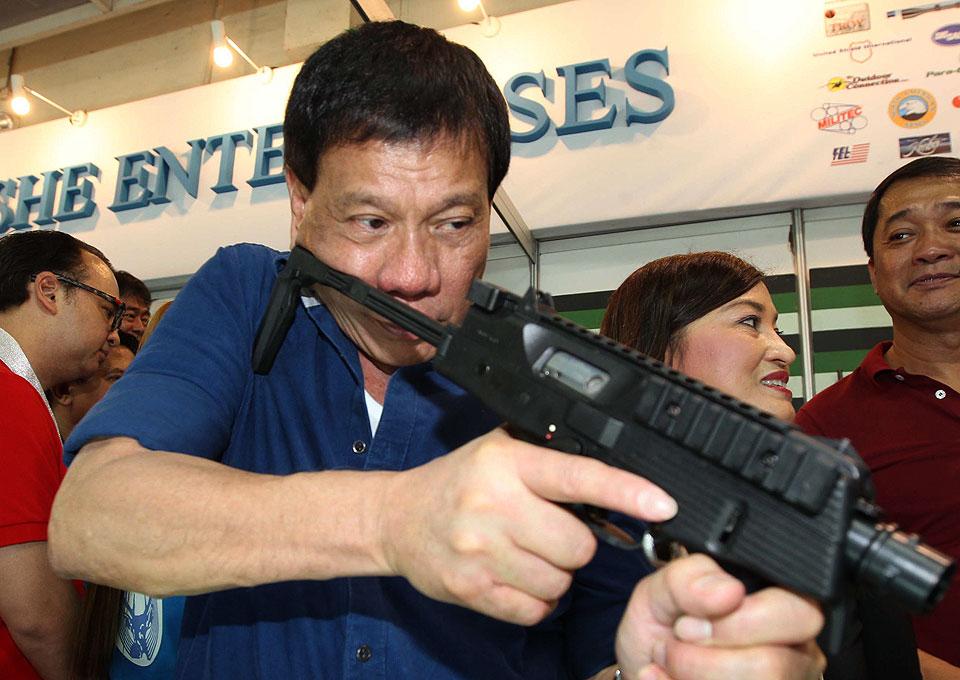Philippines Online Gaming Operators No Longer Welcomed Inside State-Sponsored Economic Zones
Posted on: April 25, 2017, 05:00h.
Last updated on: April 25, 2017, 02:53h.
Philippines online gambling companies that are currently occupying millions of square feet of office space in the country’s state-sponsored economic zones will no longer be welcomed.

This week, Philippine Economic Zone Authority (PEZA) Director General Charito Plaza issued an advisory to building owners that they shouldn’t accept new leases from iGaming operators, and must not renew rental contracts with current tenants involved in the business of online gaming.
“After meeting with the PEZA board and the Business Process Outsourcing Association, we reached a consensus that we will not allow them because gambling is not a mandate of PEZA,” Plaza declared. “I will be sending them (building owners) advisories. They should stop leasing.”
PEZA is a government agency created to help promote economic investment in the Philippines. There are more than 300 economic zones spread throughout the country, that feature special incentives for developers and their subsequent tenants.
Eviction Notices
In addition to overseeing the economic zones, PEZA also owns buildings, primarily in the Manila metro.
Plaza says there are over 100 current online gambling operators renting PEZA workspaces. And despite all of the tenants holding iGaming licenses issued by the Philippines Amusement and Gaming Corporation (PAGCOR), the state-run gaming regulator, Plaza says they’re no longer welcomed in the economic zones or PEZA facilities.
Plaza isn’t recommending tenants be forced out immediately, but when their leases expire.
PEZA’s notice is likely in response to last December’s investigation into Jack Lam’s Fontana Hot Spring Leisure Parks & Casino in the Clark Freeport Zone. The special economic area is housed on a former US Air Force base that was used during the Vietnam War.
The Chinese gaming tycoon was accused by Filipino authorities of trying to bribe PAGCOR officials in exchange for them looking the other way when it came to his online gaming operations. It’s alleged that Lam had 1,300 Chinese workers at the Fontana resort running an unlicensed iGaming network.
Another scandal that rocked the Philippines gaming industry was the international money laundering scheme that swindled $81 million out of the Bangladesh government’s account at the US Federal Reserve in Manhattan. The cyber heist moved some of the ill-gotten funds through two casinos in the Philippines.
Dreams Manila and Solaire Resort were the two resorts involved, and both reside in Entertainment City, a PEZA-approved economic zone.
PEZA vs. President
President Rodrigo Duterte has made plenty of opponents for his “shoot first, ask questions later” approach to drug dealers and organized crime. And when it comes to internet gaming, the controversial leader, who took office last June, has perpetuated a mixed bag of directives.
In the early days of his presidency, he called for the dismantling of all online gaming operations in the country. But he later changed his policy to allow internet operators to market to offshore customers if they obtain licenses from PAGCOR and pay the appropriate taxes.
“Pay the correct taxes, gamble until you die. I do not really care,” the president said.
Never one to shy away from a politically incorrect comment, Duterte said this week that should his troops capture terroristic militants alive, “Give me salt and vinegar and I’ll eat his liver.”
No comments yet